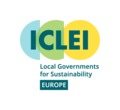9 & 10) Project planning and implementation
Project planning
Detailed planning of the selected projects follows in step nine. So at this point it is already clear that the project is to be carried out. Project planning is thus closely intertwined with implementation and can also be considered together. This step is usually also outsourced to service providers, ideally to those who subsequently take over the turnkey implementation. However, the municipality should take an active facilitating role where possible, for example, wherever it can help to speed up and facilitate the planning process (e.g. official procedures).
Project implementation
In step ten the projects are implemented, and the municipality, usually represented here by spatial planning, climate change or energy teams, will often take on a coordinating and steering role, e.g. by building partnerships between stakeholders and speeding up administrative processes. The result of this step (as supported by the previous three steps) are implemented projects.
Project management: there is no one size fits all
For planning and implementing projects, there are various concepts in project management literature. Fundamental information, standards, best practice examples and guidelines are published e.g. by the Project Management Institute (PMI). Nevertheless, there are no one-size-fits-all solutions, but it is rather a matter of defining suitable approaches for the respective project and organisational form.
Agile methods for complex H&C projects
H&C planning projects are usually complex, i.e. they are affected by uncertainties arising from future events that are unclear or difficult to predict. For example, when it is unclear whether citizens will oppose a project in the future or not. Agile management methods can be helpful in such projects. This involves principles of action, such as the Agile Manifesto, which originates from software development, for example. The focus here is on small, manageable development steps with prompt feedback loops from the customer.
Inspiration for project mangagement
- Literature on project management is available on the website of the Project Management Institute (PMI). Internet: https://www.pmi.org/learning/library#sort=relevancy
- PMI (2017): Agile Practice Guide. Internet: https://yourdigitalaid.com/wp-content/uploads/2021/02/Agile-Study-Guide.pdf
- Information on agile project management. Internet: https://www.apm.org.uk/resources/find-a-resource/agile-project-management/
- Informationen on the agile manifesto. Internet: https://blog.logrocket.com/product-management/12-agile-manifesto-principles-how-to-adopt-them/
Subscribe to our Newsletter

This project has received funding from the European Union’s Horizon 2020 research and innovation program under grant agreement No 101033706. The sole responsibility for the content of this website lies with the Act!onHeat project and does not necessarily reflect the opinion of the European Union.




